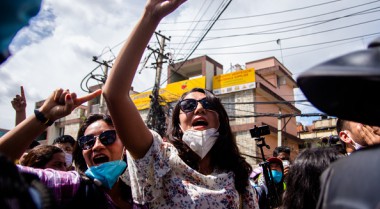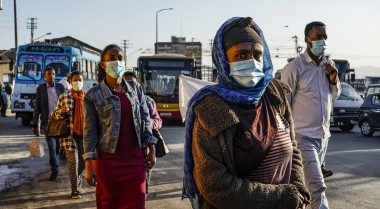
Advancing Equity and Inclusiveness: Lessons and policy recommendations from Timor-Leste’s COVID-19 pandemic response
Like most countries in the world, the COVID-19 pandemic has impacted Timor-Leste. In partnership and funded by UNESCO Jakarta, Belun, member organisation of the CSPPS Country Team in Timor-Leste, has shared its final research report of policy recommendations to face the COVID-19 pandemic. Entitled “Bearing With The Unbearable: Advancing Equity And Inclusiveness In Timor-Leste Covid-19 Response And Recovery”, the report examines the government strategy to prevent COVID-19 and the impact on vulnerable populations in Timor-Leste, while at the same time aiming to support the Government of Timor-Leste in the decision-making process focused on the mitigation of the impact of the COVID-19 pandemic.
The research presented here is based on qualitative data collection methods through focus group discussions (FGDs), and surveys with people with disabilities, martial art groups members, and youth, as well as data emanating from interviews with key stakeholders - including relevant ministries, the World Health Organisation, community leaders and others. The research was conducted from September 29, 2021, to October 23, 2021, in three municipalities of Timor-Leste: Dili, Baucau, and Bobonaro.
The main findings of the research point to impacts on populations’ income and social life, with lower-income populations being the most affected. The majority of the respondents perceived that the government still lacks a strategy in implementing the regulations aimed at addressing the COVID-19 pandemic. The report suggests specific policies to support women and youth, a communication strategy to ensure reliable sharing of information, and an implementation strategy plan for the government, among others.
As part of the continued support to its membership in recent years, CSPPS has issued two reports on the impacts of the COVID-19 pandemic on its members. Both reports highlight the disproportionate impact of the pandemic on civil society, with local peacebuilders not being taken into account enough in decision-making and with the shrinkage of civic space. The first report, entitled “Fighting COVID-19, Building Peace – What Local Peacebuilders say about COVID-19, Civic Space, Fragility and Drivers of Conflict”, can be read here, and the second report, “Persistent Impact: An Urgent Call for a Conflict-Sensitive Approach to the COVID-19 Pandemic”, can be read here.
You can read Belun's full report here and the summary version here.


